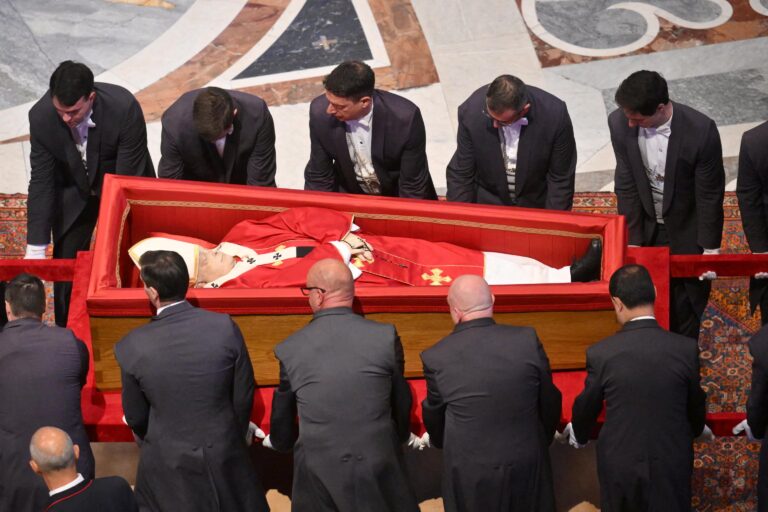
German, European stability prospects unclear after Thuringia election
Voters delivered big gains to the far-left and far-right in Sunday’s elections in the eastern German state. DW examines why the unprecedented results matter for the stability of the country — and Europe.
The central eastern German state of Thuringia is only home to about 2 million people in a country of 83 million.
But shocking results from the state’s regional election last night solidify a roiling trend of political polarization in Germany that foreshadows coming instability in both Berlin and Brussels.
What happened in Thuringia?
Thuringia is the last of Germany’s formerly communist eastern states to take to the polls this year. Since 2014, State Premier Bodo Ramelow of the socialist Left Party has led a coalition government with the center-left Social Democrats (SPD) and the environmentalist Greens.
In September, voters in the states of Saxony, Germany’s high-tech hub, and Brandenburg, known for lignite mining and agriculture, sharply rebuked parties straddling the center of the political spectrum. Both Chancellor Angela Merkel’s Christian Democrats (CDU) and the SPD, its junior coalition partner in Berlin, bled votes to parties flanking them on the ideological left and right. This in two states where those parties had comfortably governed since German reunification in 1990.
The same phenomenon occurred in Thuringia, just more dramatically. For the first time, the socialist Left Party emerged as the strongest party in a German election, capturing 31% of the vote.
The far-right Alternative for Germany (AfD) led by Björn Höcke — whose local political faction is being investigated for extremism — doubled its vote share to place second with 23%. The CDU placed third with 22%, followed by the SPD with 8%. The environmentalist Greens and the liberal Free Democrats (FDP) both finished with about 5% of the vote, the minimum needed to reenter the regional parliament.
Mathematically and politically, those results signal a difficult process for Ramelow to form a majority government. The Left Party, together with the SPD and the Greens, no longer have the numbers to cobble together a majority.
And with the CDU categorically ruling out a partnership with both the Left and the AfD, the most likely option is that Ramelow will lead a minority government — which would also be unprecedented in Germany.

What does this mean for Berlin?
For Berlin, the results out of Thuringia bring a startling picture into clearer focus: Gone are the days of stable centrist governments.
“If this happens in one regional election, you can count it as an isolated incident,” Dr. Hendrik Träger, a lecturer in German and European party politics at the University of Leipzig, told DW. “But when this happens in three regional elections, it’s a clear sign of a nationwide trend.”
For the first time in German postwar history, the four political parties representing the political center failed to resonate with a majority of voters. That’s largely thanks to Ramelow’s popularity in Thuringia, according to polling data.
But Chancellor Merkel’s Grand Coalition in Berlin also plays an outsized role: Both coalition partners have sunk so low in national polls that they would likely no longer command a governing coalition in the event of new elections.
Unpopularity aside, the CDU-SPD coalition in Berlin is surprisingly efficient. According to a recent analysis by the Bertelsmann Foundation, Germany’s current government has kept two-thirds of its legislative promises during its first 18 months in office.
But voters largely don’t see that, according to the study. And waning public trust is only compounded by major changes facing both parties: Chancellor Merkel has announced her retirement in 2021, and the SPD is in the midst of a nationwide search for its next leaders.
That puts Chancellor Merkel’s coalition under even more pressure after Thuringia to game out clearer political platforms and plan for more unorthodox partnerships with fringe parties in order to stay in power.
“The parties of the Grand Coalition in Berlin are even more damned than ever before to put aside their differences and work effectively,” said Träger.

With the longtime chancellor planning to retire in 2021, what a post-Merkel era will look like is increasingly unclear
What does this mean for Europe?
As the continent’s largest, wealthiest and most politically stable nation, Germany has come to be seen as Europe’s de facto leader.
That’s especially been the case during Chancellor Angela Merkel’s almost 15-year tenure, during which time she has presided over some of the bloc’s most dramatic crises — from Brexit and the eurozone financial crash, to increased immigration to Europe.
But Europe’s chief stateswoman is on her way out and delegating foreign policy tasks to her ministers, who in the last week alone have stood accused of unilateral decision making and bringing domestic political squabbles to the world stage.
Political polarization and instability are not uncommon in Europe. From Sweden to Spain, minority governments are actually the norm. Belgium, for example, has had a caretaker government for the past year due to stark political polarization.
Such instability in Germany, however, poses larger problems for European partners. Namely that they will have to factor in new confounding German variables when pressing new challenges arise.
“If German coalitions on the national level are too preoccupied battling for majorities … that takes away from their strength, manpower and public image to European partners,” said Träger.
Source: dw.com








You must be logged in to post a comment.